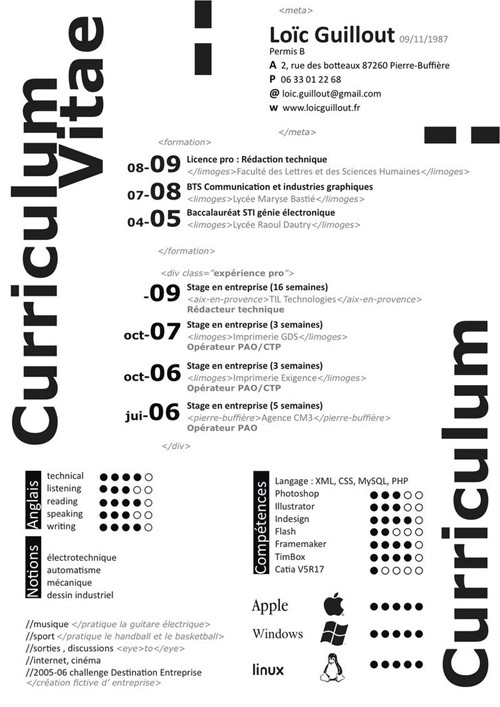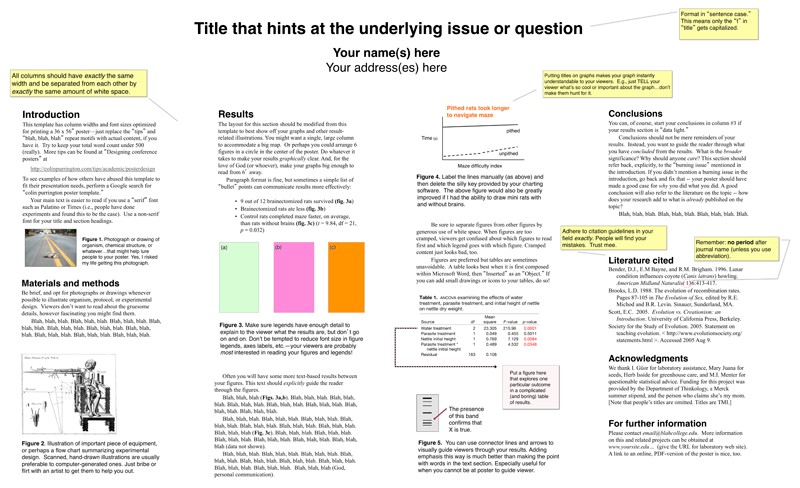Today the TAs and I are going to show you our own CVs. I have had great luck with mine, landing an interview each time I've used it - so I'm an aficionado of this style. But, there are lots of different styles out there and some exciting ideas.
Pamela has suggested looking at the templates over
here.
Another reminder that we'll be using the more academic version, a CV, rather than the North American version of a résumé:
A curriculum vitae (CV) provides an overview of a person's experience and other qualifications. In some countries, a CV is typically the first item that a potential employer encounters regarding the job seeker and is typically used to screen applicants, often followed by an interview, when seeking employment. The curriculum vitae is comparable to a résumé in many countries, although in English Canada and the United States it is substantially different.
A résumé is a simpler document while the CV is expected to thoroughly outline your education and your professional history (think jobs, volunteer work, publications, presentations etc...).
In the words of the
University of Waterloo's Career Services:
What is a curriculum vitae?
A presentation of credentials for a research/teaching position in a university, a research institute,
or company with R&D requirements. A résumé (two pages maximum) is prepared for employers
outside the academic and research environment
An indispensable job hunting tool that represents an objective, factual, personal history of you -
an advertisement designed to market you by highlighting your abilities and future potential
A summary of your career aspirations, educational background, employment experience,
achievements, and interests
Key headings to include in your cv:
- Name
- Address/Telephone/Email
- Citizenship
- Research and/or Professional Inter ests
- Education/Professional Training/Certifications
- Employment
- Publications
- Presentations
- Awards/Scholarships
- Professional Affiliations
- Volunteer Work
- Languages
- Hobbies
Here are some creative takes on CVs:

From McGill University,
here is a useful video outlining the elements of a cv.
Also from McGill, a v
ery handy cv writing guide.
HOMEWORK due before Monday's Class:
Students will choose two researchers in their field who use delicious and write a paragraph (as a blog comment on THIS post) noting:
- The importance of each researcher
- The types of resources each researcher bookmarks
- The clarity and/or style of tagging that each researcher employs
Remember, if you post a comment under an alias, make sure I know who you are by sending me an e-mail!
For those of you who don't read the comments. Here is some additional help:
Some ways to find people using delicious.
You might check out the scientists you have followed on Twitter and see if any of them use delicious (look at their blogs)
You can also do a google search for researchers/key people in your field, have a look at their blogs and see if they have a delicious tag cloud.
I know I was involved with an creative writing new media online course and I was interested in their delicious links:
http://www.delicious.com/cwnm
Howard Rheingold, a key player in my field and in new media in general (you might be interested too!):
http://delicious.com/hrheingold
I mentioned in class (and on my cv) that I'm part of the Transliteracy Research Group so I keep up to date with those bookmarks too:
http://www.delicious.com/transliteracy
Of course, our class is on delicious too:
http://delicious.com/ales204
An interesting article on how to use delicious in research: go
here
Note: delicious is still working out some bugs due to the move from Yahoo... you can read about it
here.

















